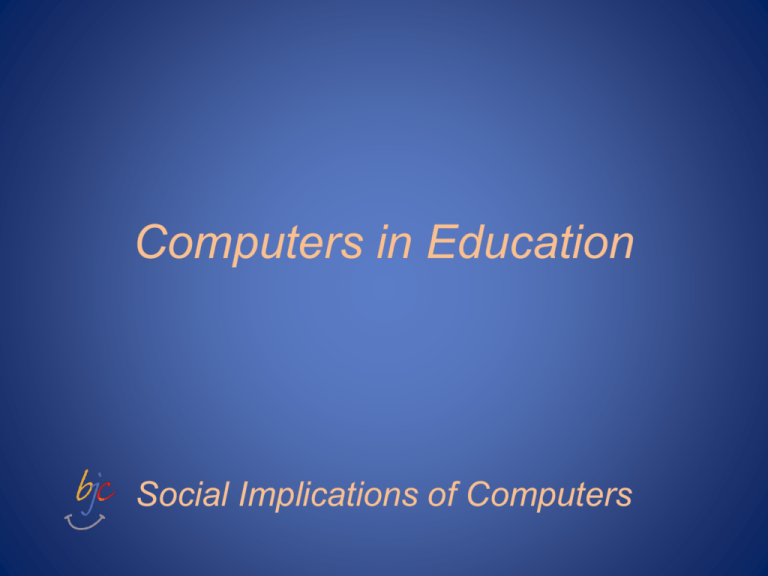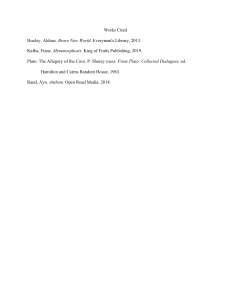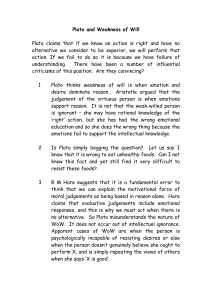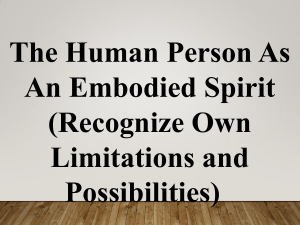Computers in Education
advertisement

Computers in Education Social Implications of Computers Pop Quiz! • What’s the most important effect computers have had on education so far? Multiple Choice Tests • The intent of computer grading of tests was – to eliminate a bit of drudgery for teachers – to enable large-scale standardized testing • Unintended consequences of computer grading of tests have included – profoundly changing the epistemology (what is knowledge?) of schools to emphasize factual knowledge over ability to analyze texts, creativity, etc. – fueling a change in national education policy so that test scores are the sole or primary means of evaluating schools and teachers as well as students. • ... thereby giving rise to widespread cheating by Very early days: Plato, 1960 • "[I]t established key on-line concepts: forums, message boards, online testing, e-mail, chat rooms, picture languages, instant messaging, remote screen sharing, and multi-player games." (Wikipedia) • "[Donald] Bitzer, regarded as the Father of PLATO, succeeded because of his rejection of modern educational thinking, and returning to a basic drillbased educational system; his team improved existing systems by allowing students to bypass lessons already learned." (Wikipedia) • "[T]he PLATO system was re-designed, between 1963 and 1969; PLATO III allowed 'anyone' to design new lesson modules using their TUTOR programming language, conceived in 1967 by biology graduate Early days: BASIC on 8-bit micros • Very little educational software • Primitive word processing • Nothing packaged with the computer except BASIC interpreter, so kids were taught programming by default. • 1990s-2010: “All the software is already written, so why teach programming?” Instead, “computer literacy” classes teaching Word and Google. • 2010-now: NSF-driven effort to attract more students, especially women and minorities, to computer science. – BJC is part of that effort Judah Schwartz’s Continuum TOOLS TUTORS MICROWORLDS Word processor Drill Browser CAI Programming Interactive geometry Physics simulation Database (e.g., atlas) Okay, a word about MOOCs • Pro: – Way better than nothing for people stuck in Podunk. – Learn from the best lecturers. – Encourage learning for its own sake (vs. credentialling). • Con: – Overemphasis on lectures (and maybe homework) over discussion and a community of learners.











